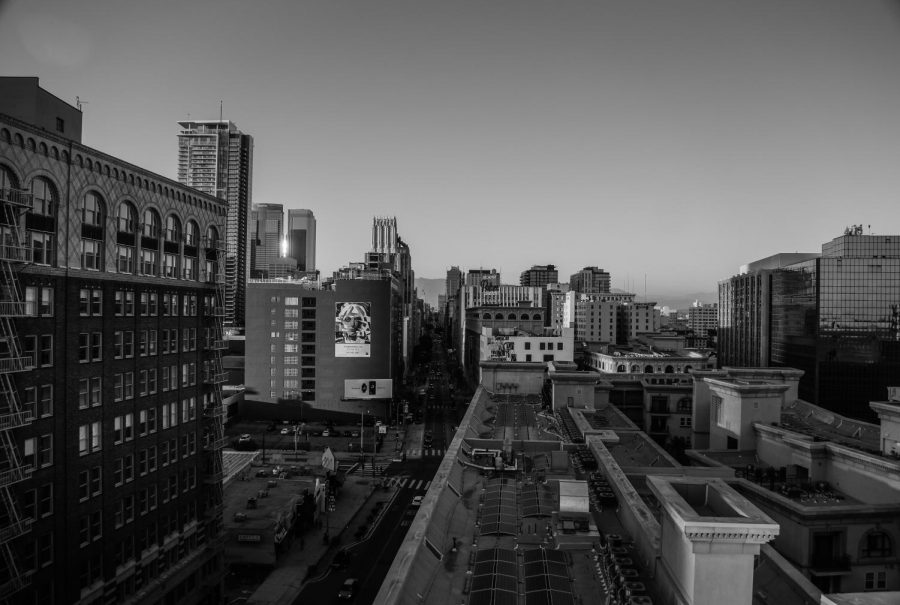Issues in the Latinx Community
Gentrification and cultural appropriation
Gentrification continues to be a problem in the Latinx community. But what exactly is gentrification? Many believe that it is very similar to, or the equivalent of cultural appropriation, when, in fact, it is very different.
According to Webster, Gentrification is the process in which a poor area (as of a city) experiences an influx of middle class or wealthy people who renovate and rebuild homes and businesses which often results in an increase in property values and the displacement of earlier, usually poorer residents.
Netflix’s Gentefied does a great job of illustrating the problem of gentrification by telling the story of a Mexican-American family living in a neighborhood in downtown Los Angeles. The story is about the family, mainly three cousins who struggle with their identities, upholding a legacy and the push and pull of their Mexican and American cultures.
In addition, their family’s taco shop is in danger of being torn down after a major increase in their rent as new businesses threaten the town they call home and its rich culture.
This occurs in cities everywhere, and is largely seen in Los Angeles. It is a city known for its deep-rooted culture and many small businesses that are put in danger because of gentrification.
Since March, many small businesses have been in danger as the Coronavirus threatens their opening. In an article published by the Washington Post, UCLA economist Paul Ong said, “the Covid-19 recession is disproportionately hurting these minority businesses, making their communities more vulnerable to gentrification pressures than they already were before.”
Another issue facing the Latinx community is cultural appropriation.
Last year, Mattel released a Dia de Los Muertos Barbie for the price of $75, and it sold out almost immediately. This year, they repeated the Barbie, this time in a new outfit and it also sold out immediately.
Many online had something to say about it; some happy that there was representation for Mexican culture, but others were alleging that it was cultural appropriation.
Mexican-American designer Javier Meabe designed the doll. Many online Twitter users are saying that the Barbie, especially at that price, was created to deepen their pockets, not to honor the culture at all.
Twitter user @Pearcascade tweeted, “I know this is not a new topic but I just wanted to say how much I hate the Dia de Los Muertos Barbie doll. It’s not only literally profiting on the cultural holiday, it’s also not helping people understand and respect the holiday by making it limited.”
https://twitter.com/pearcascade/status/1319723949861855232?s=21
Twitter user @GinaMGarcia2 was upset with the price, tweeting, “I am still waiting on the Dia De Los Muertos Barbie to become available at a reasonable price. Now the 2020 Barbie is out at a crazy price.”
I am still waiting on the Dia de los Muertos Barbie to become available at a reasonable price. Now the 2020 Barbie is out at a crazy price.
— Gina M Garcia (@GinaMGarcia2) October 1, 2020
While most Barbies begin at around $10 and are somewhat attainable for most families, this Barbie goes for over seven times that and is unattainable for most families and children.
Similarly, Verve Culture released products inspired by Mexican culture including a molcajete and a tortilla press for a whopping $60. There is also a Mexican chocolate set for $80.
Many online users have expressed their outrage at the outright gentrification of Mexican cookware that is found for a fraction of the price at markets and benefit local artisans and artists instead of filling the pockets of a company that claims to take people “on a cultural journey through [their] artisan made products.”
Twitter user @DonTicallion was outraged tweeting, “We gentrifying Mexican cookware?”
We gentrifying Mexican kitchen cookware? #NoMamen pic.twitter.com/xiyGkNLRz8
— DonRob™️ (@DonTicallion) September 12, 2020
Similarly, twitter user @bolognamilk tweeted her distaste by saying, “girl a 60 dollar molcajete is not accessible. People can just go to a local marketa, or Spanish store, or places where you can directly support the creators of this, rather than to buy it from this whitewashed third party, expensive retailer.”
https://twitter.com/bolognamilk/status/1305615169611943936?s=21
It is clear that these issues of cultural appropriation continue to make a mark on society, but with a more progressive online population, the message to stop is made very clear.


